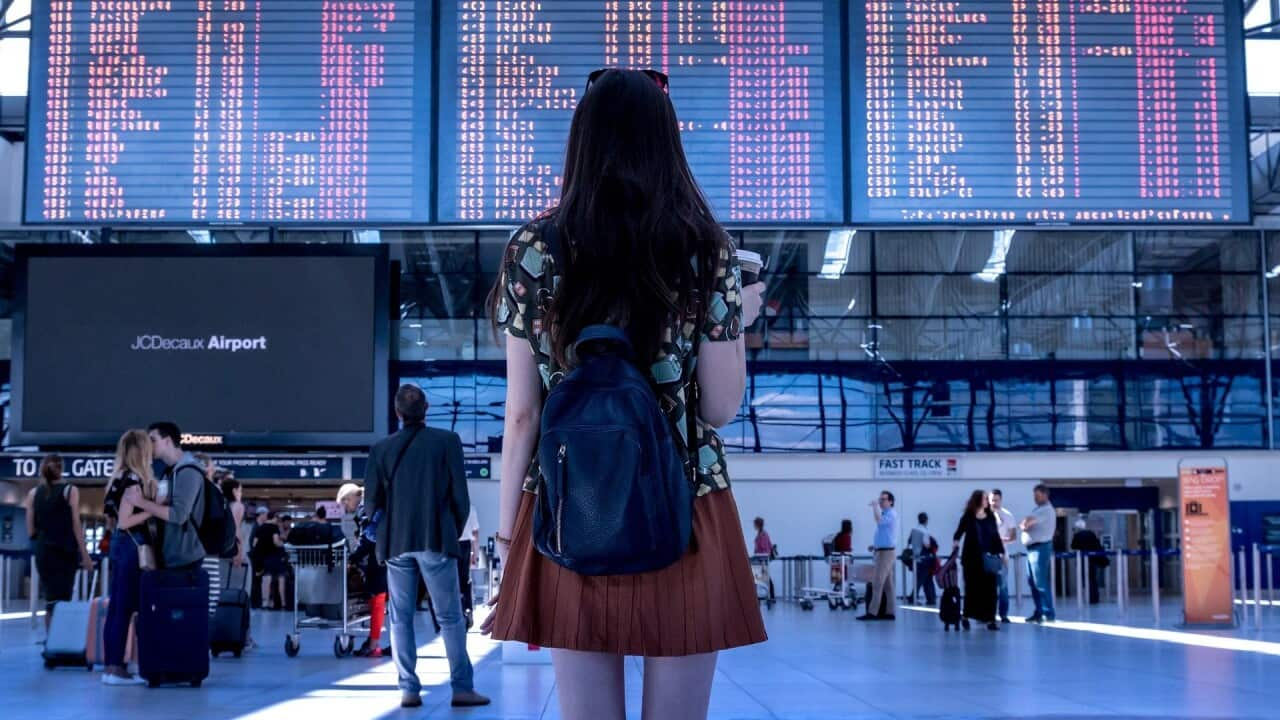Highlights
- Indian international student returns to Australia after securing a travel exemption
- International students outside the pilot plans will have to wait longer to return to Australia
- States and territories have been asked to draw up plans to accommodate returning international students
Ramandeep Singh Sidhu is one of only 300 international students who have returned to Australia in the past seven months after the government closed its borders to contain the coronavirus outbreak in the month of March.
Speaking to SBS Punjabi, the accounting student said he could not believe his luck when an exemption grant landed in his inbox last month, even though he wasn’t employed at the time of making the request.
“It was my second attempt and when I received an email from the Department, I assumed it would just be another rejection letter, but to my surprise, it was indeed an approval to travel on critical skills,” he said.
The 24-year-old attributes the travel grant to his work experience in the aged care sector which is identified as ‘critical’ by the Australian Border Force when considering requests for individual inward travel exemptions.

Indian international student Ramandeep Singh Sidhu returns to Australia after securing a travel exemption on critical skills. Source: Supplied
“I have worked in the aged care sector for the past three years alongside my studies, but I still wasn’t expecting an exemption because my employer had terminated my contract in September owing to my prolonged absence.
“But I did attach a service letter as proof of my work experience along with both of my applications for exemption- which were exactly the same, which seemed to have worked in my favour," said Mr Sidhu.
On March 20, all non-citizens who do not meet limited travel exemptions were banned from entering the country to limit the spread of the virus- a decision that has served as a key bulwark against the pandemic.
But it has also left many temporary visa holders, including foreign students with incomplete degrees and skilled workers out of homes, jobs, and separated from their loved ones. While they can travel to Australia if they are in an exempt category, or by requesting an exemption at the discretion of the Commissioner of the Australian Border Force, approvals are very hard to come by, particularly for international students.
SBS Punjabi had earlier reported on the journey of another along with her dependent husband and six-year-old daughter after 15 unsuccessful attempts. She has now returned to her home in Tasmania.

When can international students begin to return to Australia? Source: Getty Images/Virojt Changyencham
Mr Sidhu’s exemption comes at a time when the Australian Government has decided to push back the return of more international students so that quarantine spots remain available for more than 36,000 Australians stuck overseas who are desperate to return home.
Providing further clarity on the exemption policy, Health Minister Greg Hunt on Sunday said that travel exemptions will continue to be considered for persons who are considered “critical” and of “national interest.”
He said, ‘Australians first policy’ will not apply “where it’s something that an individual is critical to activity, and there are many reasons in terms of national interest.”
Mr Hunt added that the government is keen to bring back its international students that contribute nearly $40 billion to the country’s revenue, but only when there is additional quarantine capacity to do so.
“We would like to see students coming, but because there are large numbers that could displace a very large number of Australians, we would like to see those students come when there is additional capacity over and above what’s required to bring home Australians.”
International students can still return as part of pilot plans initiated by states and territories:
While, all is not lost for the country’s more than 135,000 currently enrolled students who remain stranded by the COVID-19 induced border restrictions.
Prime Minister Scott Morrison on Friday said that the decision to prioritise Australians will not impact the small numbers of international students who are part of the pilot plans that have been initiated by states and territories, “because they have been done above caps.”

A traveler walks in a mostly empty terminal. Source: AAP
States and territories have already been instructed to without disadvantaging Australian citizens and permanent residents seeking to return to the country.
Reopening of international borders:
On the subject of international borders, Mr Hunt said the restrictions will remain in place for high-risk countries, and any decision to open borders with countries posing low risk is taken through a “risk stratification” process.
“It assesses each country individually, it looks at their overall case numbers but also their own border control situations, and it’s only when they believe that the situation in that country does not pose a risk to Australia that we’d be willing to consider a country,” he said.
People in Australia must stay at least 1.5 metres away from others. Check your state’s restrictions on gathering limits.
If you are experiencing cold or flu symptoms, stay home and arrange a test by calling your doctor or contact the Coronavirus Health Information Hotline on 1800 020 080.





